- Home
- Business Optimization
- Solutions
- Productivity Solutions
- Post-Installed Rebar Solutions

Post-installed rebar solutions
Streamline design and installation of concrete-to-concrete connections
For engineers and designers: Achieve high performing, value-engineered post-installed rebar (PIR) connections according to Eurocode 2 and ACI and other innovative design methods with the Concrete-to-Concrete (C2C) module of our PROFIS Engineering Suite software. Have peace of mind that your designs are implemented as intended by embedding SafeSet into your specifications
For contractors: Get simpler, faster and safer installation of PIR in line with specifications – the Hilti SafeSet system provides automatic hole cleaning and assists with accurate mortar dosing.
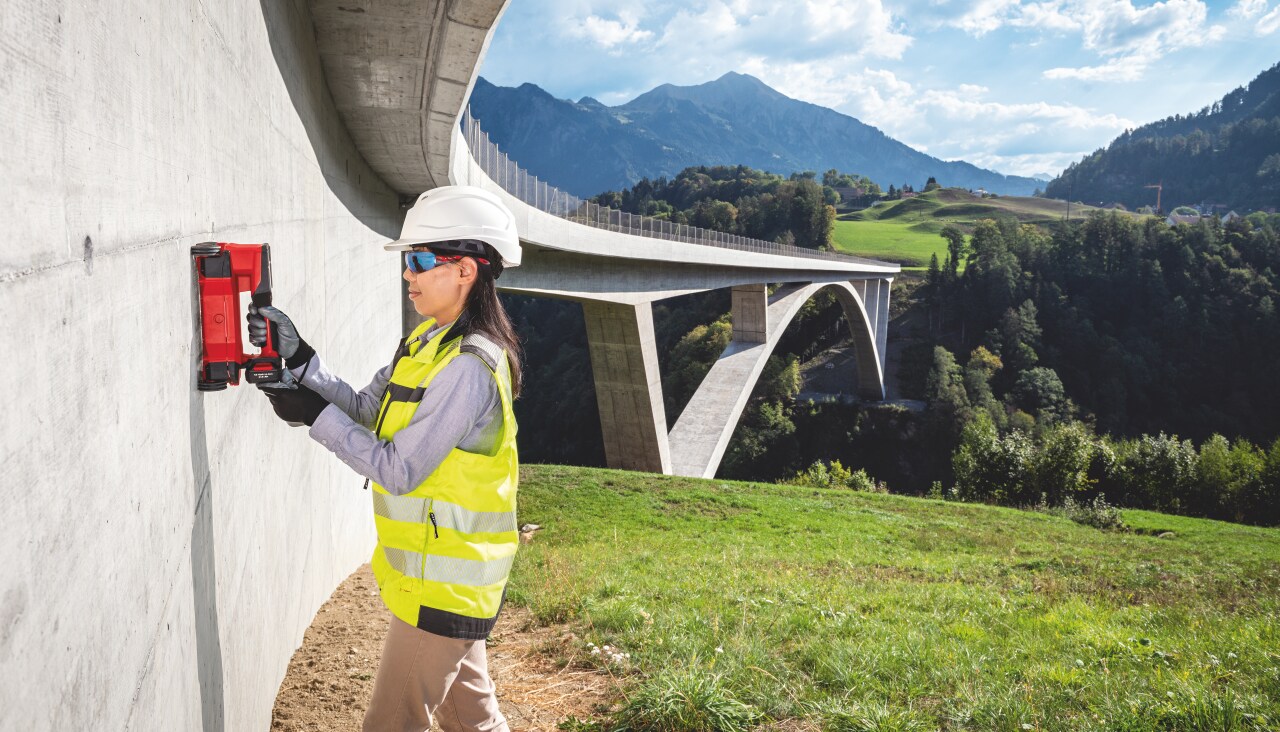
Step 1: Minimize risks with a concrete scanner
Use Ferroscan to help get rebar positioning right first time
Reduce the risk of accidental damage to existing reinforcement during rebar installation by using a concrete scanner such as the Hilti PS 300 Ferroscan. Pinpoint the location of rebar in concrete, even over large areas, then record the data for documentation and structural analysis purposes. You’ll help lower the risk of expensive project delays, speed up drilling work and increase compliance with building regulations.
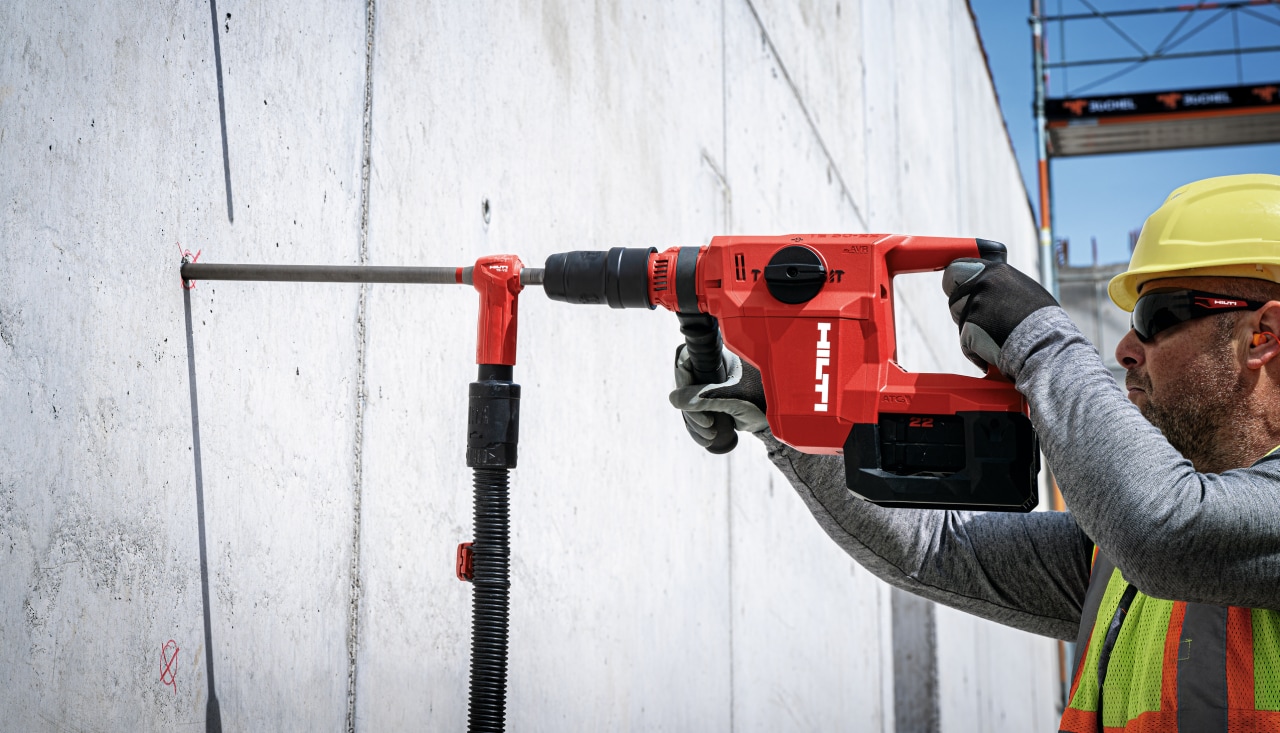
Step 2: Speed up drilling and cleaning by up to 60%
Skip manual hole cleaning for post-installed rebar with SafeSet
What if you could say goodbye forever to the traditional blow-brush-blow method for rebar hole cleaning? With SafeSet, drilling and hole cleaning is a one-step process that can help you work faster, obtain better installation quality and boost jobsite safety.
To install rebar using SafeSet, combine a Hilti rotary hammer with a Hilti hollow drill bit along with the right Hilti vacuum cleaner for enjoy automatic and virtually dust-free hole cleaning
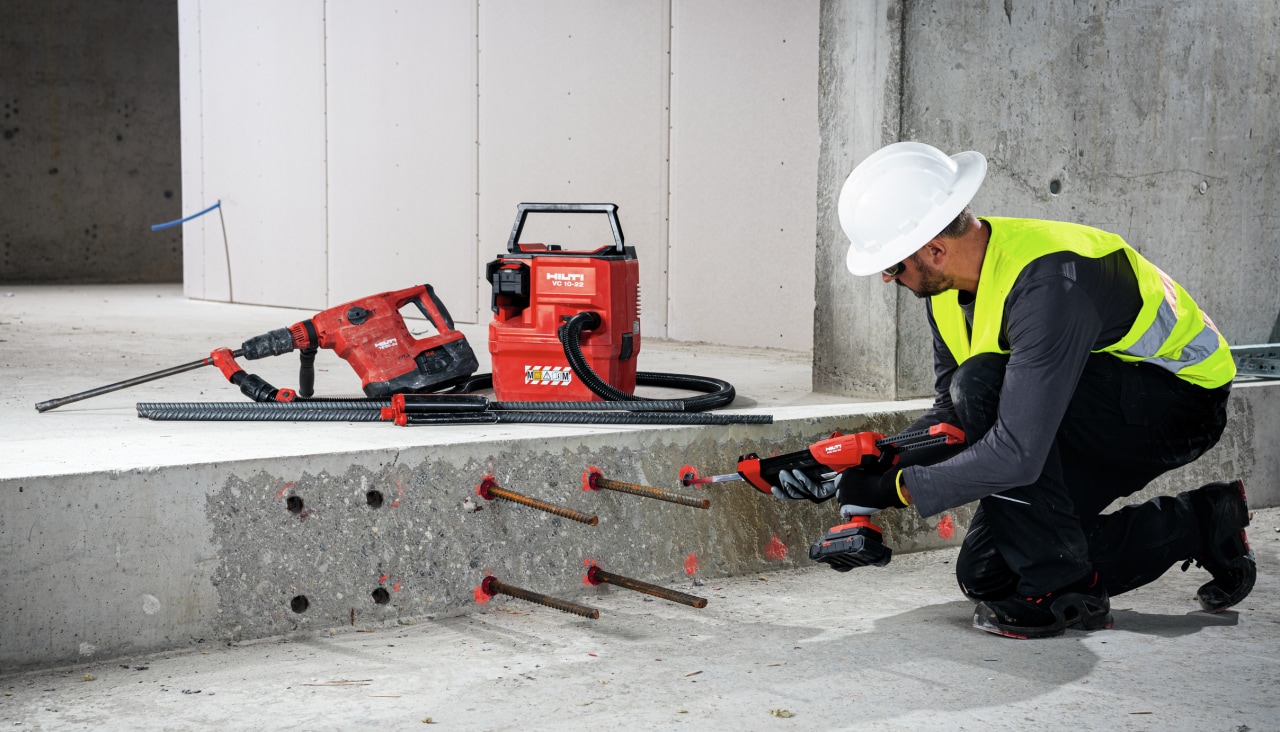
Step 3: Precision mortar dosing
Improve rebar installation quality and reduce product waste
Our anchoring solutions for for PIR installation include:
- Precision dosing with the HDE 500-22 cordless mortar dispenser
- Hilti Volume Calculator app to work out the ideal mortar dosage based on your rebar, embedment depth and drilling diameter
- Adhesive anchors for virtually all your tasks including Hilti HY and RE mortars for ultimate performance in exacting conditions and HIT-FP-700 R for fire-resistant concrete-to-concrete connections
Solutions to improve your post-installed rebar installation
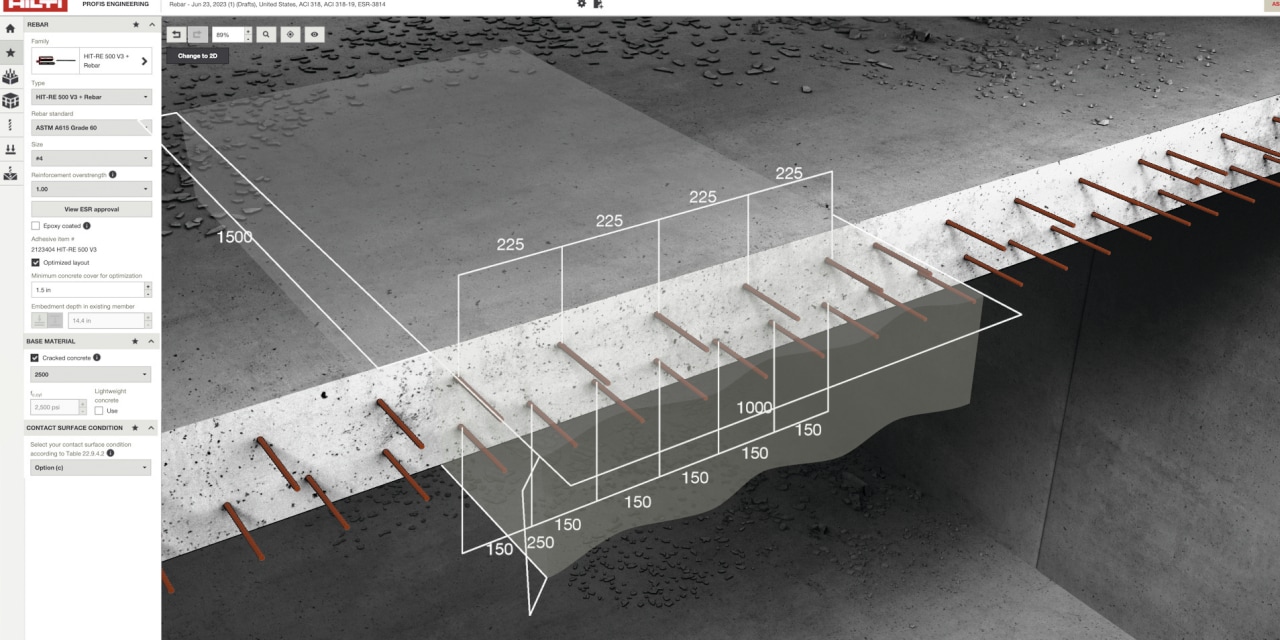
Code-compliant post-installed rebar design
Speed up design of concrete-to-concrete connections – select the latest compliant design methods to help with specific applications.
Get started with free PROFIS Engineering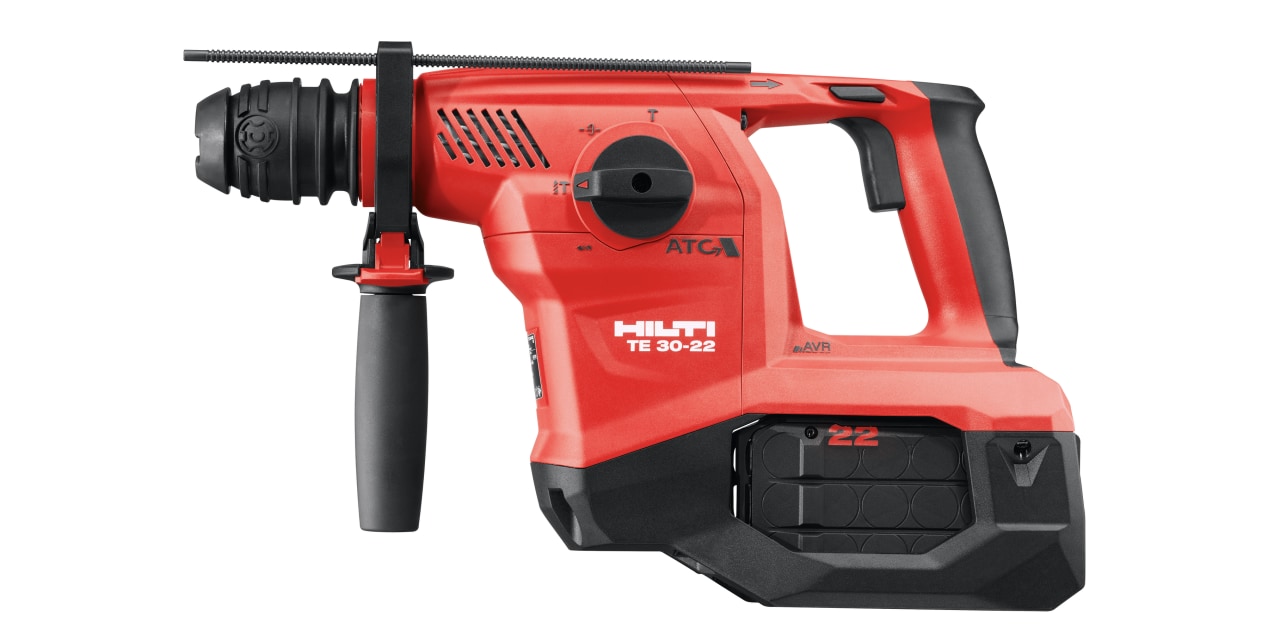
All day power with cordless drilling
Get more cordless power and run-time and ever with from SDS-Plus and SDS-Max rotary hammers on our Nuron platform.
Explore SDS-Plus rotary hammers Explore SDS-Max rotary hammers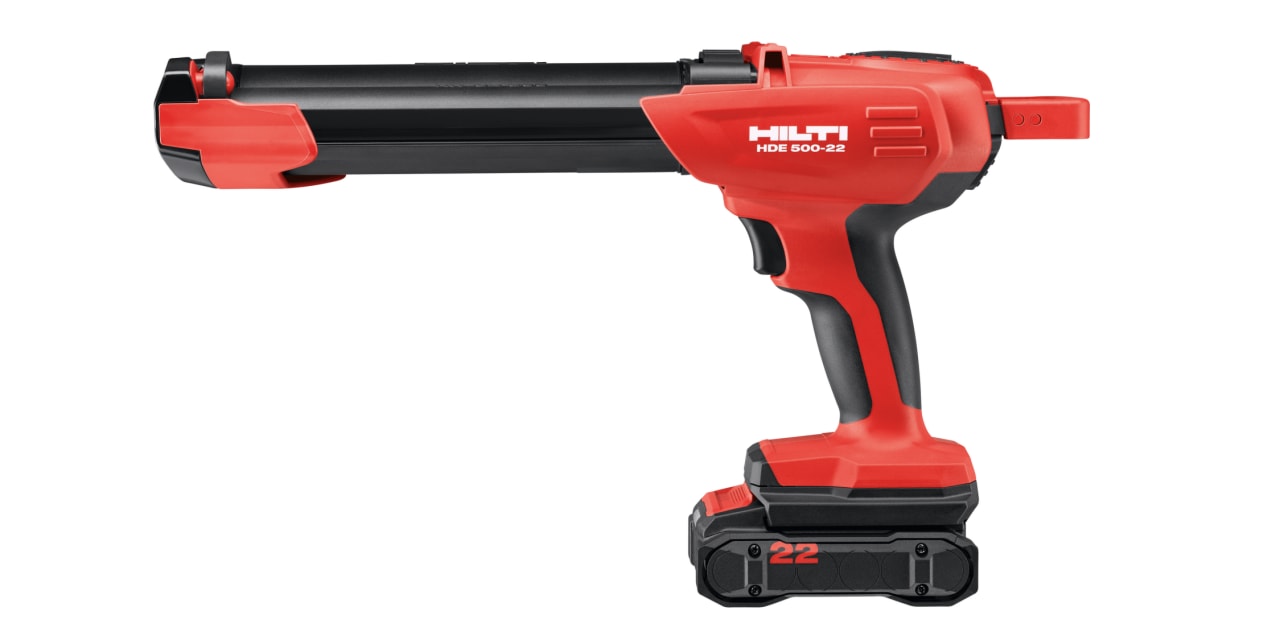
Precision mortar dosing
Hybrid/epoxy adhesive anchor dispenser with smart features to help increase speed, safety and reduce waste.
Explore the HDE 500-22 cordless dispenser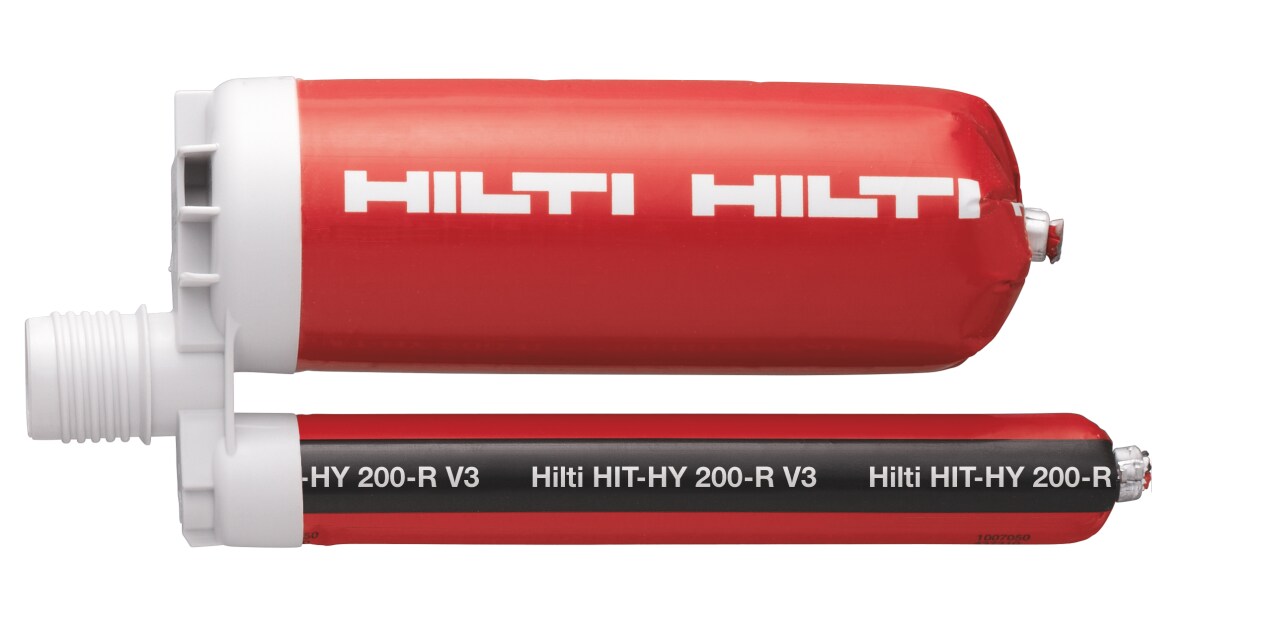
Injectable mortar with approvals for PIR
Higher performance injectable hybrid mortar with approvals for rebar connections and heavy-duty anchoring.
Explore HIT-HY 200-R V3 adhesive anchor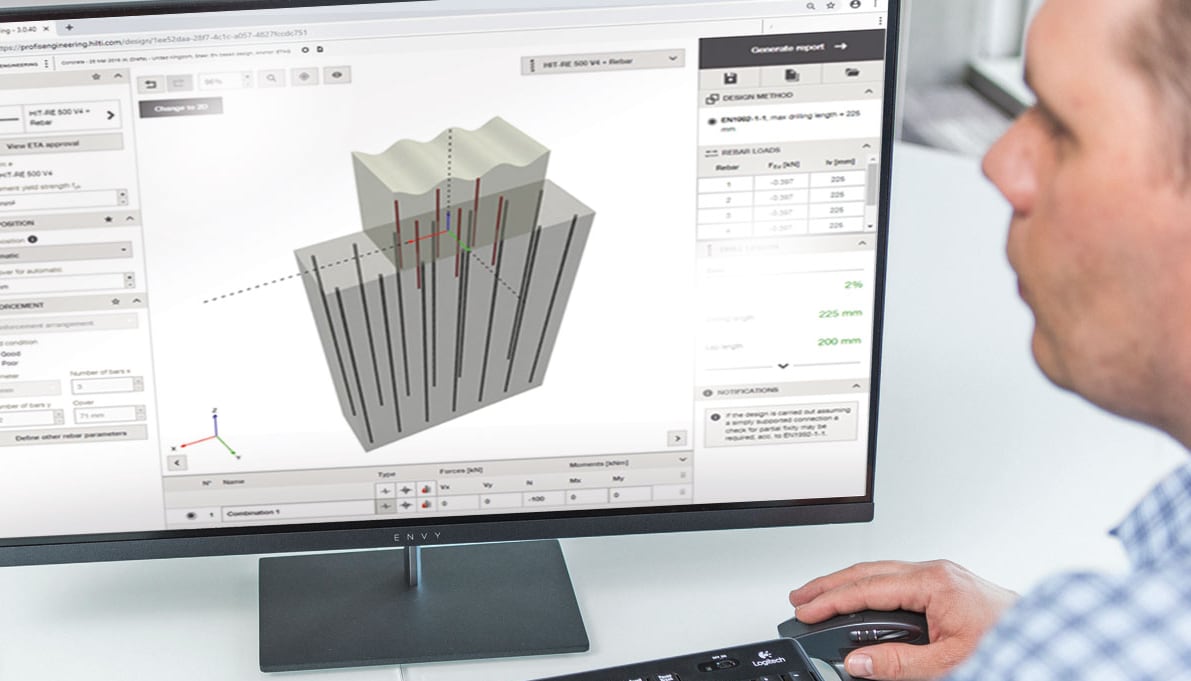
Efficient design of post-installed rebar connections
Optimized, compliant design in a few clicks with full customization options
The Concrete-to-Concrete module of our PROFIS Engineering software helps deliver:
Peace of mind: Choose from compliant design methods including Eurocode 2, ACI and many others.
Time savings: Calculate end anchorages and lap splices in a few clicks, perform simultaneous design of multiple design methods and calculate multiple load combinations, including static, seismic and fire.
Cost savings: Achieve more precise distances between splices and save on materials with easier rebar positioning and precise length calculation.
Flexibility: Simulate jobsite conditions to help solve your toughest design challlenges.
FAQs - post-installed rebar
What applications are post-installed rebar used for?
Post-installed rebar (PIR) can be used for most connections on site – for instance, walls, slabs, beams, foundations or supporting columns.
The most common use for PIR is extending existing structures. Applications include:
- Wall extensions
- Column extensions
- Beam extensions
- Slab extensions
- Balcony extensions
PIR can also be used for connecting new components to existing structure. These are simply supported or rigid connections used for:
- Beam-to-wall connections
- Corbel-to-wall connections
- Connecting staircases to existing walls
- Wall to wall connections
In addition, PIR can be used for strengthening existing concrete structures. We have developed unique solutions for shear friction for bridge deck overlays and punching reinforcement including:
- Concrete overlay
- Ceiling reinforcement
- Column foundation
- Bridge deck strengthening
Why do I need to design post-installed rebar? Can't I just use a data sheet?
Data sheets provide individual data points that need to be combined through a design approach to understand the performance of a full concrete-to-concrete connection. Single point performance is not directly representative of the full performance of a connection.
What do I need to check when I receive a request to substitute one product with another?
The performance of different products can vary depending on the application. That's why any substitution approvals should be supported with a new design using the substituted product.
Why should I specify a specific product by name on my construction drawings?
The design performance of post-installed rebar is unique to a specific product. If a design was created based on the performance of a specific product, it is important to use the exact same product during installation. If a different product is used, the design is no longer applicable.
How can I ensure that my post-installed rebar design is implemented as intended on the jobsite?
When you specificy products that are part of the SafeSet system, contractors can get faster, simpler and safer installation of post-installed rebar. We also offer on-site support as well as training and guidance to help give you peace of mind.
Explore more business solutions from Hilti
Onsite testing of rebar
Our experts can check the resistance of a base material during the design phase or after installation as proof loading of the rebar installation. You'll receive a detailed report containing comprehensive technical data.
Schedule an on-site rebar testEngineering support
Partner with Hilti to benefit from expert support through all stages of your project. We offer everything from specialist advice and accredited training to engineering judgements.
Cordless without compromise
Carry out virtually all your applications on one platform with Nuron. Nuron features over 100 tools for jobs from cutting and drilling to breaking and fastening.
Explore Nuron cordless tools